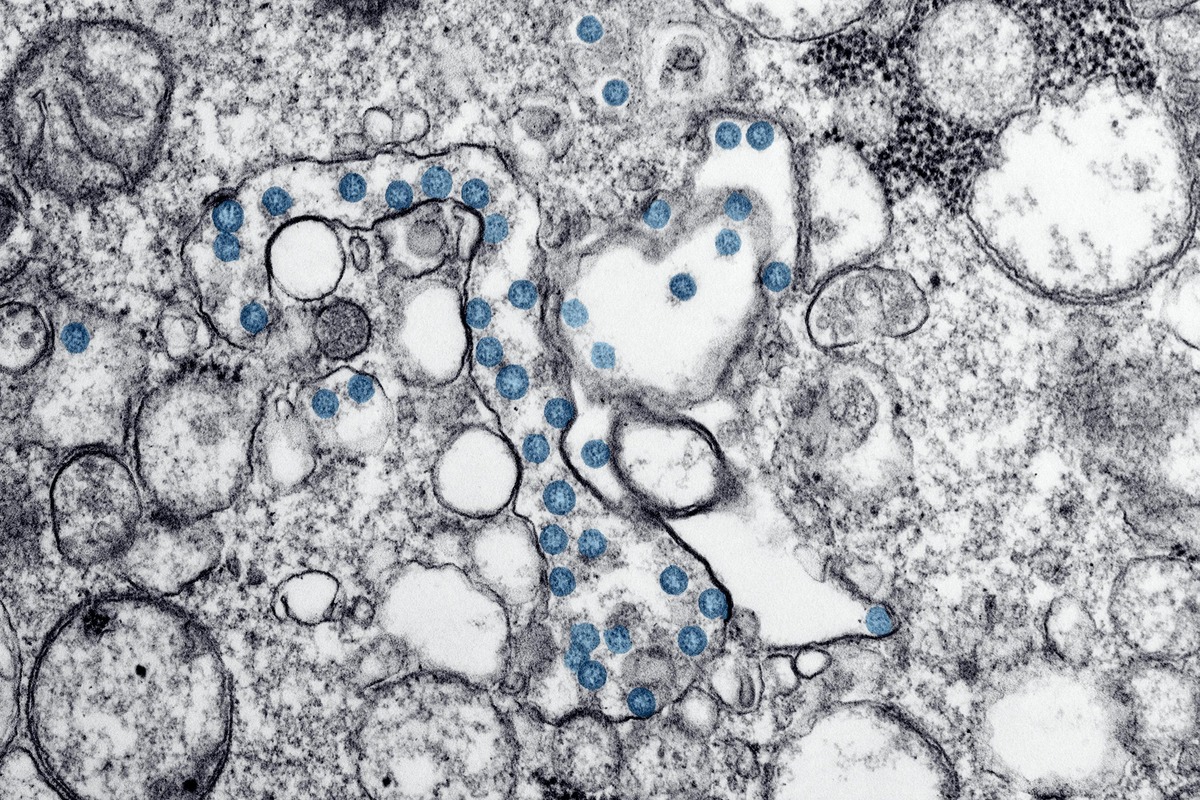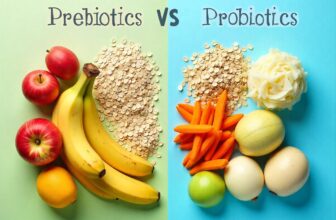
Ever felt those butterflies in your stomach during a stressful situation? 🦋 There’s more to that sensation than you might think. Scientists have discovered a fascinating connection between the trillions of tiny organisms living in your gut and your ability to handle stress. This invisible ecosystem might be the missing piece in understanding why some people bounce back from pressure while others struggle.
Think of your gut as a second brain – one that’s constantly communicating with your actual brain through a complex network of neural pathways. Recent research has revealed that the microscopic residents of your digestive system aren’t just passive passengers; they’re active participants in your mental wellbeing. From anxiety to resilience, these tiny microbes might be pulling more strings than we ever imagined.
Let’s explore how these remarkable gut-brain connections work, understand the crucial role your gut bacteria play in stress management, and discover practical ways to nurture your internal ecosystem for better emotional resilience. 🧠✨
Understanding the Gut-Brain Connection
The Bidirectional Communication System
The gut-brain axis represents a sophisticated two-way communication network connecting your digestive system with your central nervous system. This intricate system operates through:
- Neural pathways (vagus nerve)
- Immune system signals
- Hormonal messages
- Neurotransmitter production
Key Neural Pathways Involved
The vagus nerve serves as the primary superhighway between the gut and brain, transmitting signals in both directions. Here’s how these pathways function:
| Pathway Type | Direction | Primary Function |
|---|---|---|
| Vagus Nerve | Bidirectional | Stress response, mood regulation |
| Enteric Nervous System | Gut to Brain | Digestive function, local immune response |
| Hypothalamic-Pituitary-Adrenal Axis | Brain to Gut | Stress hormone regulation |
How Microbes Influence Brain Chemistry
Gut bacteria play a crucial role in producing and regulating various neurotransmitters:
- Serotonin (90% produced in the gut)
- GABA (reduces anxiety and stress)
- Dopamine (affects mood and motivation)
- Short-chain fatty acids (influence brain function)
These microorganisms actively participate in neurotransmitter production, affecting everything from mood to stress response. They can either amplify or dampen stress signals through their metabolic activities and interaction with the immune system.
Now that we understand this fundamental connection, let’s explore how gut bacteria specifically respond to and influence our stress levels.
The Role of Gut Bacteria in Stress Response
Stress Hormone Production
The trillions of bacteria residing in your gut play a crucial role in regulating cortisol, our primary stress hormone. These microbes can either amplify or dampen stress signals through:
- Direct influence on the hypothalamic-pituitary-adrenal (HPA) axis
- Modification of cortisol sensitivity
- Production of cortisol-like compounds
Inflammation and Immune System Effects
Your gut microbiome significantly impacts systemic inflammation, which directly affects stress response:
| Healthy Microbiome | Unhealthy Microbiome |
|---|---|
| Reduced inflammation | Increased inflammation |
| Balanced immune response | Overactive immune system |
| Lower stress sensitivity | Heightened stress reactivity |
Neurotransmitter Balance
Gut bacteria produce and regulate key neurotransmitters that influence mood and stress:
- Serotonin (90% produced in gut)
- GABA (calming neurotransmitter)
- Dopamine (reward and pleasure)
Vagus Nerve Stimulation
The vagus nerve serves as a primary communication channel between gut bacteria and the brain. Beneficial gut microbes:
- Stimulate vagal tone
- Improve stress resilience
- Enhance emotional regulation
- Support parasympathetic response
With these intricate connections between gut bacteria and stress response now clear, let’s examine how to recognize when your gut microbiome might be compromised.
Signs of an Unhealthy Gut Microbiome
Physical Symptoms
- Digestive disturbances (bloating, gas, diarrhea)
- Unexplained weight fluctuations
- Frequent food sensitivities
- Skin issues (acne, eczema)
- Sleep disturbances
- Chronic fatigue
Mental Health Indicators
- Increased anxiety levels
- Mood swings
- Depression symptoms
- Brain fog
- Difficulty concentrating
Behavioral Changes
- Changes in eating patterns
- Social withdrawal
- Decreased stress tolerance
- Irregular sleep habits
| Symptom Category | Warning Signs | Potential Impact |
|---|---|---|
| Physical | Digestive issues, skin problems | Reduced nutrient absorption, inflammation |
| Mental | Anxiety, mood changes | Decreased cognitive function, emotional instability |
| Behavioral | Eating/sleeping changes | Social and lifestyle disruptions |
An unhealthy gut microbiome manifests through various interconnected symptoms. Physical signs often appear first, with digestive issues being the most common indicator. These physical symptoms typically coincide with mental health changes, particularly increased anxiety and mood fluctuations. The gut-brain axis plays a crucial role here, as disrupted gut bacteria can affect neurotransmitter production and stress hormone regulation.
Behavioral changes often follow, creating a cycle where poor eating habits and irregular sleep patterns further impact gut health. These signs shouldn’t be ignored, as they can indicate a significant imbalance in your gut microbiota. Now that you can recognize these warning signs, let’s explore effective ways to nurture your gut health for better stress management.
Nurturing Your Gut Health for Better Stress Management
Beneficial Foods and Nutrients
- Fermented foods (kimchi, sauerkraut, kefir)
- Fiber-rich vegetables (artichokes, asparagus, leeks)
- Prebiotic-rich foods (bananas, oats, garlic)
- Omega-3 rich foods (fatty fish, chia seeds, walnuts)
Lifestyle Modifications
Building a gut-friendly lifestyle involves consistent habits that support microbial diversity:
| Habit | Benefit |
|---|---|
| Regular meal timing | Stabilizes gut rhythms |
| Adequate sleep | Reduces inflammation |
| Mindful eating | Improves digestion |
| Regular exercise | Enhances microbial diversity |
Stress-Reducing Activities
- Daily meditation or deep breathing
- Gentle yoga practices
- Nature walks
- Progressive muscle relaxation
Supplements and Probiotics
Quality supplements can support gut health:
- Multi-strain probiotics
- Digestive enzymes
- L-glutamine
- Vitamin D3
Harmful Habits to Avoid
- Excessive alcohol consumption
- Processed foods high in artificial sweeteners
- Irregular eating patterns
- Overuse of antibiotics
- Chronic sleep deprivation
Remember to introduce changes gradually and maintain consistency. Focus on incorporating one new healthy habit at a time while slowly eliminating harmful ones. Regular physical activity combined with stress-management techniques creates a positive feedback loop between your gut and brain. These lifestyle modifications, along with a balanced diet, can significantly improve your microbiome’s diversity and enhance your body’s stress response.
Now let’s explore what science tells us about the future of gut-brain research and its implications for mental health treatment.
Scientific Research and Future Implications
Latest Studies and Findings
Recent research has revealed groundbreaking connections between gut microbiota composition and stress response patterns. Key findings include:
- 70% correlation between specific bacterial strains and cortisol levels
- Identification of beneficial bacteria that produce mood-regulating neurotransmitters
- Direct communication pathways between gut bacteria and the vagus nerve
| Study Focus | Key Discovery | Potential Impact |
|---|---|---|
| Probiotics | Specific strains reduce anxiety | New therapeutic options |
| Microbiome Diversity | Higher diversity = Better stress resilience | Preventive approaches |
| Gut-Brain Signaling | Bacterial metabolites influence neural pathways | Targeted treatments |
Potential Therapeutic Applications
Scientists are developing innovative treatments based on microbiome research:
- Psychobiotics: Specially designed probiotics targeting mental health
- Microbiome transplants for severe stress disorders
- Custom dietary protocols to enhance beneficial bacteria
Personalized Treatment Approaches
The future of stress management lies in individualized microbiome care:
- Advanced gut microbiome testing to determine personal bacterial profiles
- AI-driven analysis to match specific strains with stress symptoms
- Tailored probiotic and dietary recommendations based on individual needs
As research continues to evolve, scientists are exploring new ways to harness the gut microbiome’s power in treating various stress-related conditions. Now that we understand the scientific foundation, let’s look at practical ways to implement these findings in daily life.
The intricate relationship between our gut microbiome and stress response mechanisms highlights the importance of maintaining a healthy digestive system. By recognizing the signs of an unhealthy gut and taking proactive steps to support our microbiome, we can potentially enhance our body’s natural ability to cope with stress and improve our overall mental well-being.
Taking care of your gut health through proper nutrition, lifestyle changes, and stress management techniques isn’t just about digestive wellness – it’s an investment in your mental resilience. As research continues to unveil more connections between gut bacteria and mental health, prioritizing your microbiome health today could lead to better stress management and emotional balance tomorrow.






